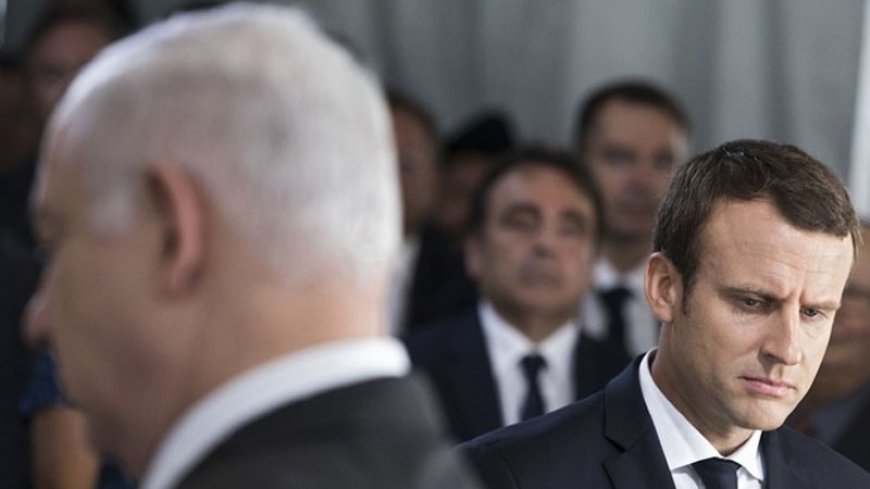Opposition to arming Israel. Will France gain foreign policy independence?

The New York Times interpreted French President Emmanuel Macron's frequent pronouncements about banning arms deliveries to Israel in the context of France's desire to become an independent international power.
Macron has ordered a stop to armament supplies to Tel Aviv, alleging that it violates the cease-fire in Gaza and Lebanon. A question that infuriated Israeli authorities. According to RT, "New York Times" reported that Macron had made this suggestion before. Macron also urged the UN General Assembly to suspend selling guns to Israel last month, arguing that a cease-fire is incompatible with military sales.
The NYT says: "Observers think Macron's words match his personality. He plans to retain France's original dream of becoming an independent worldwide power with this manner."
Analysts say Macron's image is built on his aggressive and occasionally disruptive foreign policy. According to Western Asia specialist David Khalfa of the French "Jean Jaure Foundation" (THE Foundation Jean Jaure) analytical organization, these statements cast doubt on French policy toward Israel.
However, Saint Joseph French University in Beirut professor of West Asian Studies Karim Emil Bitar says: "When you try to keep both sides happy in foreign policy, you end up pushing both sides away from you."
According to Carnegie Peace Foundation member and French foreign policy specialist Reem Mumtaz, "Lebanon is a place where France can still act as a superpower, even if it is no longer a superpower."
A political specialist noted. Macron is realistic and understands his statements won't influence US military commitment for Israel. However, such move sends a strong statement to the world that France and maybe Europeans are different from America."
However, French Foreign Minister Jean-Noel Barro recently emphasized that Israel's security requires both military and diplomatic means.













































